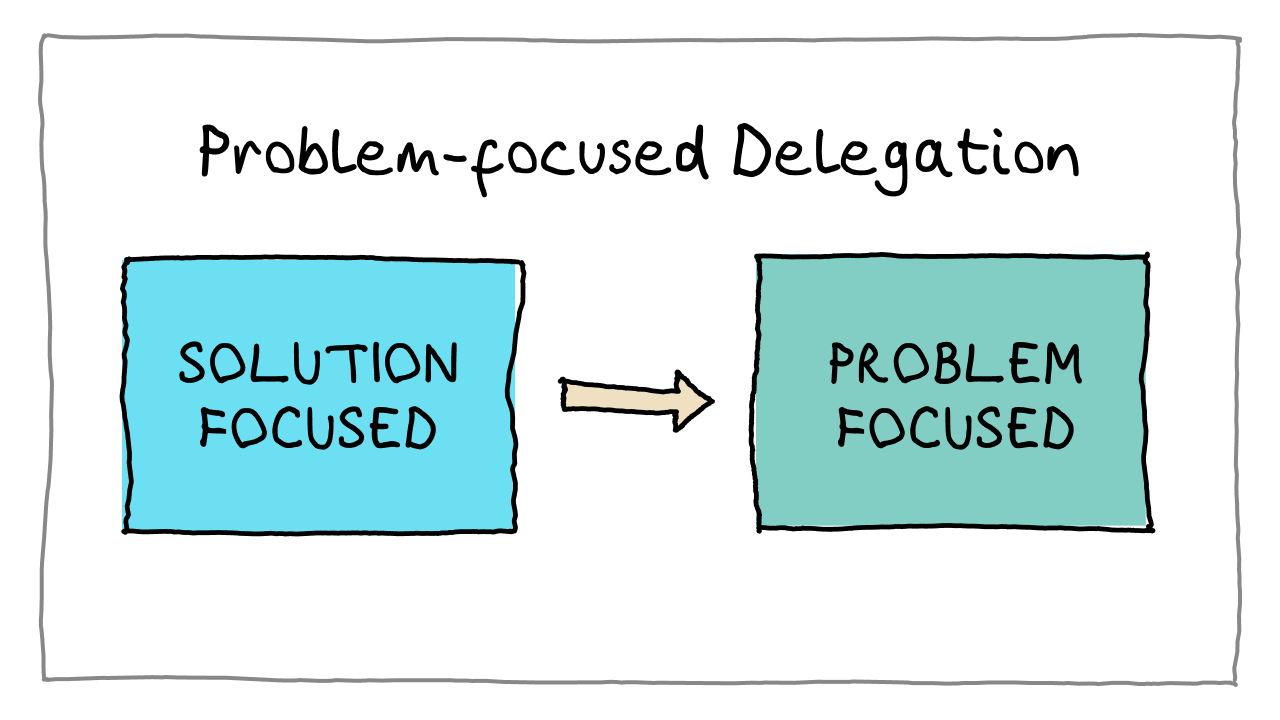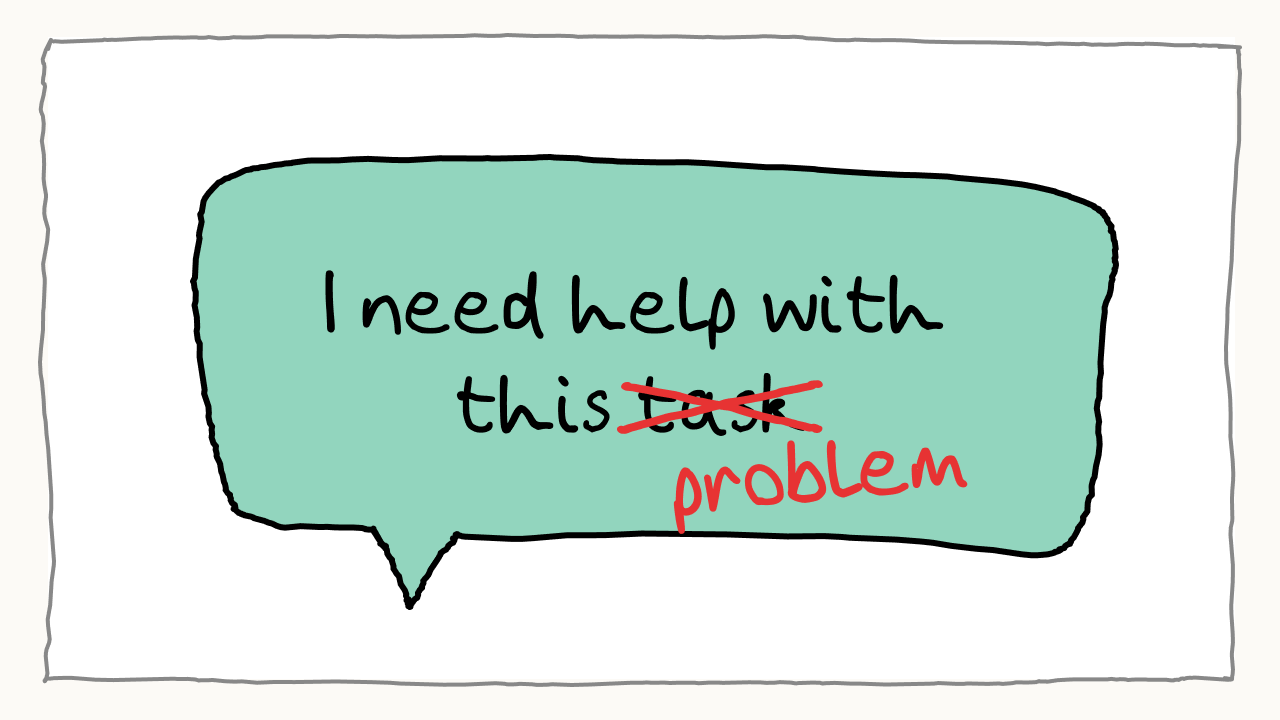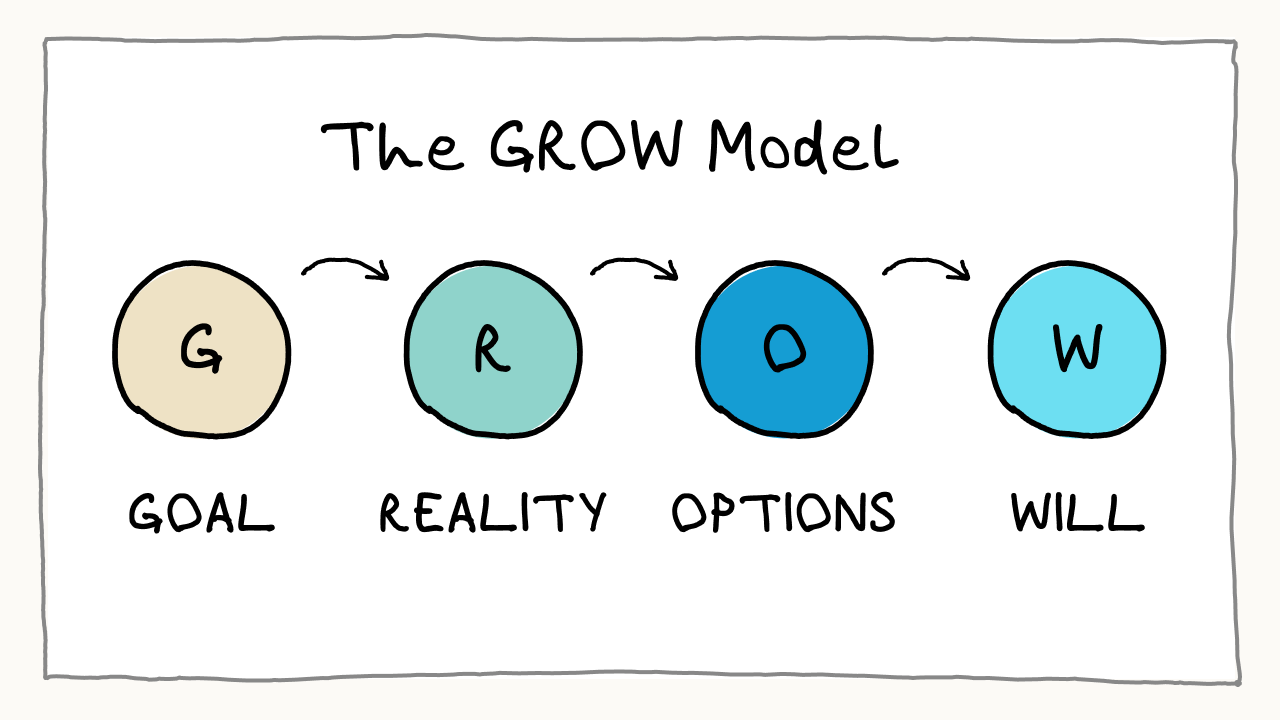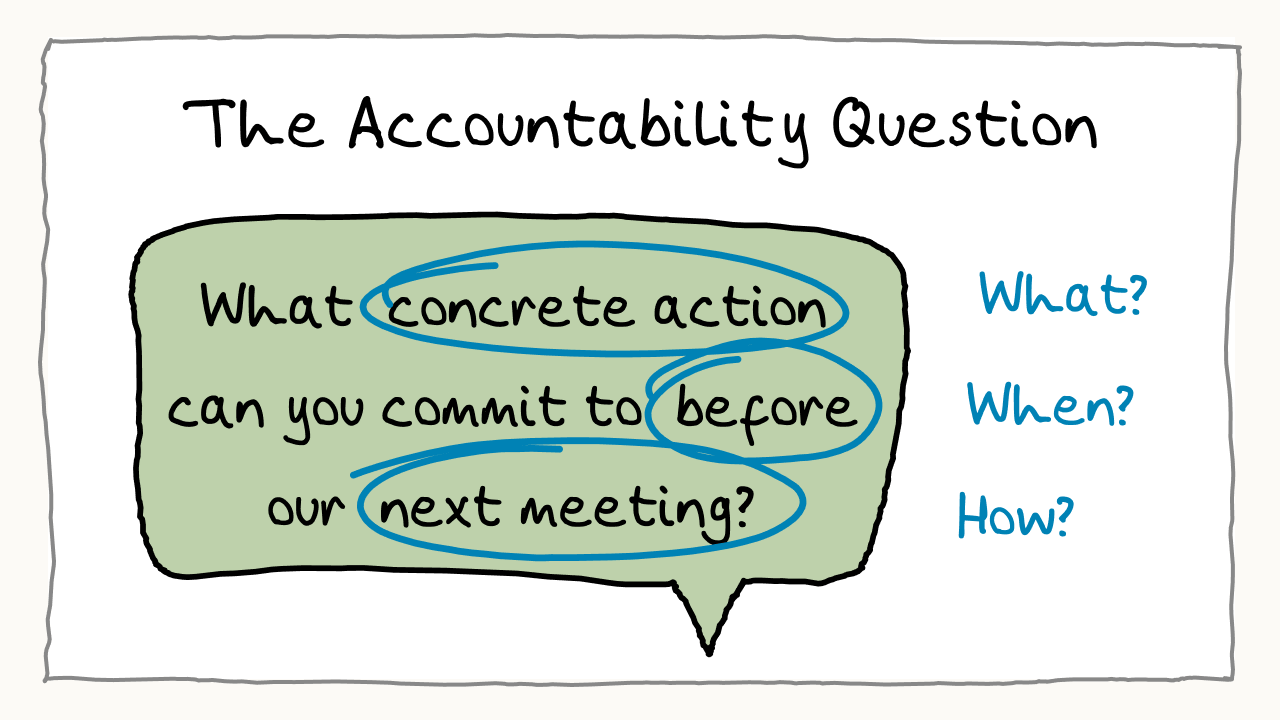How to Delegate Work So It Actually Gets Done
Written by Dave Bailey
As a manager, it's tempting to handle every problem yourself. Learn how to delegate problems effectively, and coach your team using the GROW model.
Like most of the founders I meet, when I started my first business, I was new to managing people. I loved getting s*** done and getting my hands dirty, so the idea of delegating work to others was unnatural — I’d rather do it myself.
When I did delegate, it often left me feeling frustrated; I’d find out later that it hadn’t turned out as I’d expected, or it wasn’t even close to completion. I took it personally and it weighed on my mind. I felt that if I wanted something done right, I had to do it myself. And as my workload increased, I rapidly approached burnout.

The problem with my approach
A few years ago, I was in the process of hiring a marketing manager. I asked our office manager to research the relevant recruitment agencies, get in touch with each of them, and report back to me.
A couple of days later, the manager returned. He’d emailed several agencies, but most of them hadn’t responded. My heart sank; this didn’t help me one bit.
‘Did you follow up with a phone call?’ I asked.
‘Sorry,’ he replied. ‘I’ve only got limited time available. I just have too many other priorities.’
Later, I reflected on this with a more experienced mentor. The manager had done what I’d told him to do. Yet, here I was — frustrated and knowing that somehow the way I delegated wasn’t working out for me.
My mentor then gave me some wise advice:
Delegate problems, not tasks.
I realised that the problem of filling my calendar with qualified candidates hadn’t been explicitly delegated. But if that problem had been solved, I could’ve been interviewing and hiring the right person for the job.
Delegation is an art and a science. Here’s a step-by-step guide to delegating more effectively.
Learn new skills every week ->
Step 1: Delegate problems, not tasks
The idea of delegating problems instantly resonated with me. When you’re deep in execution mode, you naturally think in terms of critical tasks, but good delegation requires you to think in terms of end-states.
Once you identify the core problem to delegate, check that it actually solves your problem. For example, interviewing candidates throughout the following week would have given me a scheduling problem. What I really wanted was to set aside a single morning for interviews.

However, delegating problems is only the first step. The next part is even more important: to help the person you’re delegating to find their solution.
Learn new skills every week ->
Step 2: Coach, don’t instruct
The job of a coach is to help others work through their problems and find their own solutions. When I started coaching founders, I learned some great people-management techniques that I wish I’d known earlier in my career.

The GROW framework
The simplest and most relevant one is the ‘GROW framework’, invented by Sir John Whitmore. Here’s how to use the GROW model when delegating problems:
1. (G)OAL: Establish the goal.
Once you’ve delegated the problem, ask your employee to explain what a good result would look and feel like. Answer any questions they ask, to help them understand what outcomes would resolve the problem. Once the goal is clear, make sure they write it down.
2. (R)EALITY: Examine the current reality.
Before jumping into solutions, allow the employee to build awareness of the situation. Use the following questions to stimulate reflection:
- Where are we now in relation to the goal?
- What’s working and what isn’t working?
- Is anything stopping you from making progress?
3. (O)PTIONS: Explore the options.
Next, you want to help your employee examine different options that could address the problem. Pose questions like:
- What are your options?
- What else could you do?
- Who do you know who has encountered a similar situation?
Like any brainstorm, don’t shoot down any options just yet.
Learn new skills every week ->
4. (W)ILL: Establish the will.
Finally, get commitment from the employee and help them map out their next steps. Again, let them come up with solutions by asking questions:
- What do you think you need to do right now?
- How will you know when you have done it?
- What resources can help you?

Scaling your business requires effective delegation
As you grow your business, the need to adopt a coaching relationship with your direct reports intensifies. The best people love to solve problems — and they hate being micromanaged. This is especially true if you’re hiring people better than you.
It’s also great for keeping your employees motivated. Solving problems helps people connect with their purpose, continuously learn new things, and stay in control of their own destiny.
Continue to read about delegation techniques:
- Have a new team? Here's a handy guide on how to hold your management team accountable.
- Want to improve your 1-1 template? Learn what you need to make employee one-on-ones productive.
- Is your team underperforming? Learn why being hard on your team might be what they need.
Originally published Mar 23, 2019, last updated Jul 26, 2023
How do top founders actually scale?
I’ve coached CEOs for 10,000+ hours—here’s what works.
Join 17,000+ founders learning how to scale with clarity.
Unsubscribe any time.




